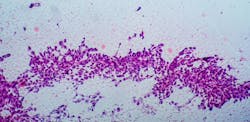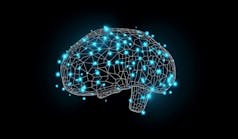Many cancer patients undergo treatment with multiple drugs, each of which attacks cancer in a different way, so the combination fights cancer on many fronts. But more drugs mean higher risks of side effects.
Avinash (Avi) Sahu, PhD, assistant professor at The University of New Mexico Comprehensive Cancer Center and his research team created two approaches. The first, called BiopotentR, uses publicly available genomic data to find drugs that can attack cancer in multiple ways and identify genes that the drugs target. The second applies machine learning methods to this information to predict how people will respond to immunotherapy.
But cancer research data alone wasn't enough for Sahu and his team to predict how people would respond to a drug. They needed additional biological data that they could then apply to cancer patients and cancer drug responses. In machine learning terms, they needed to learn from the biological context and apply that knowledge to a cancer context; it’s a technique called transfer learning.
Sahu and his team partnered with a company to find a compound that would target the top cancer gene candidate they identified using BipotentR. In preclinical testing, they confirmed that their predictions were accurate.
The University of New Mexico Comprehensive Cancer Center release





